Put your wallet away and just raid your own shelves.
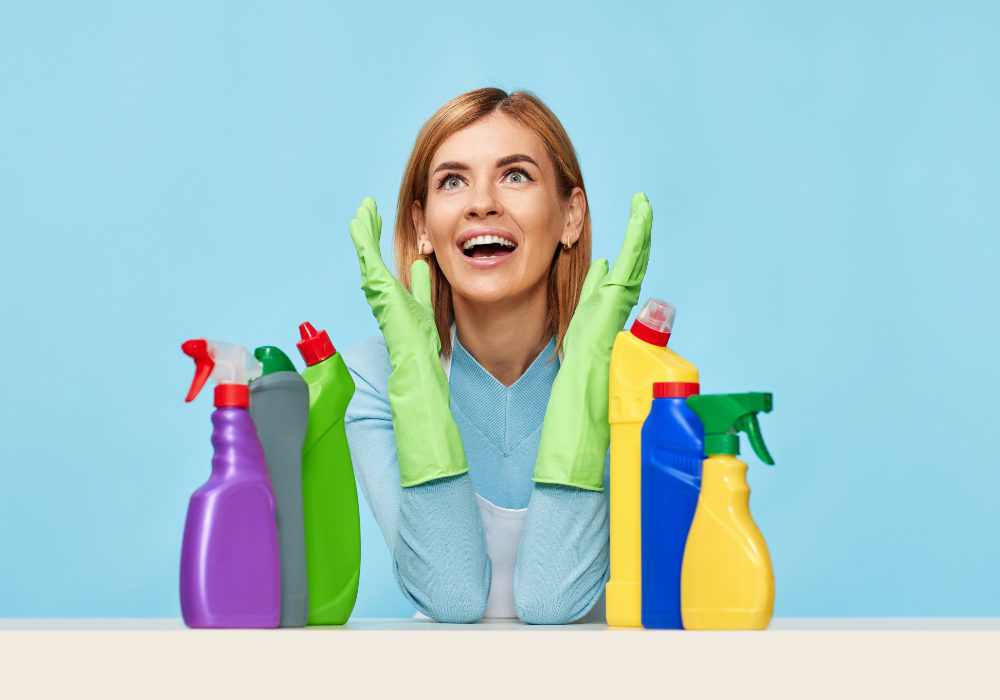
You don’t need a basket full of expensive, “non-toxic” sprays to clean sustainably. A lot of what you already own—maybe stuff collecting dust in a cabinet—can work just as well, without the mystery chemicals or plastic packaging. Whether it’s something from your pantry, medicine cabinet, or fridge, odds are you’ve got a few multi-tasking items that can tackle grime, cut grease, or disinfect naturally.
Eco-friendly cleaning doesn’t have to mean spending more—it can start with spending nothing. You’re not just saving money by using what you’ve already got; you’re keeping synthetic cleaners out of waterways, plastic out of landfills, and fumes out of your home. These first five items aren’t just clever hacks—they’re reminders that sustainability can be simple, practical, and surprisingly satisfying. If it’s sitting in your kitchen or bathroom already, it might be all you need to get started.
1. Baking soda scrubs, deodorizes, and even unclogs drains.

You probably have a box of baking soda in your pantry or fridge right now. Beyond absorbing odors, it’s one of the most versatile natural cleaners you can use. Its gentle grit makes it great for scrubbing sinks, tubs, and stovetops without scratching surfaces. You can also sprinkle it on carpets before vacuuming to neutralize funky smells. Madeline Buiano and Helena Madden note in Martha Stewart that pouring baking soda followed by vinegar down the drain can help dislodge mild clogs and freshen pipes without resorting to harsh chemicals.
It also works as a deodorizer in shoes, trash cans, or the bottom of your compost bin. One humble box can do the job of multiple harsh chemical products—and without polluting your air or water. If you’re only going to switch one thing in your routine, this is a solid place to start.
2. White vinegar breaks down buildup like a pro.

It smells strong, but it works even harder. White vinegar is especially effective at breaking down soap scum and mineral buildup, according to writers at Puracy, thanks to its natural acidity. Use it to clean windows, shine faucets, descale your coffee maker, or freshen up your washing machine. Just mix it with water in a spray bottle for a budget-friendly all-purpose cleaner.
The acidity makes it powerful, but still safe enough for most surfaces. Add a few drops of essential oil if you want to mellow out the scent. And while it’s not a disinfectant for serious sanitizing jobs, it’s more than enough for everyday cleaning. Skip the blue liquids and “citrus breeze” chemicals—vinegar gets it done without the landfill guilt.
3. Lemon slices disinfect, deodorize, and shine surfaces.

Got an old lemon drying out in the back of your fridge? Don’t toss it—clean with it. Lemons contain citric acid and natural antibacterial properties that make them ideal for tackling grease and neutralizing unwanted smells, as Allie Williams explains in Purdy & Figg. Slice one open and rub it on cutting boards, counters, or faucets to freshen and brighten instantly.
You can microwave a bowl of water with lemon slices to steam-clean the inside of your microwave or use lemon juice to lift mineral stains from glass and metal. Paired with salt, it turns into a natural scrub for tough jobs. It’s also compostable, biodegradable, and smells way better than most store-bought sprays. Basically, if it’s too old to eat, it’s probably still good for cleaning.
4. Olive oil polishes wood and revives dull surfaces.
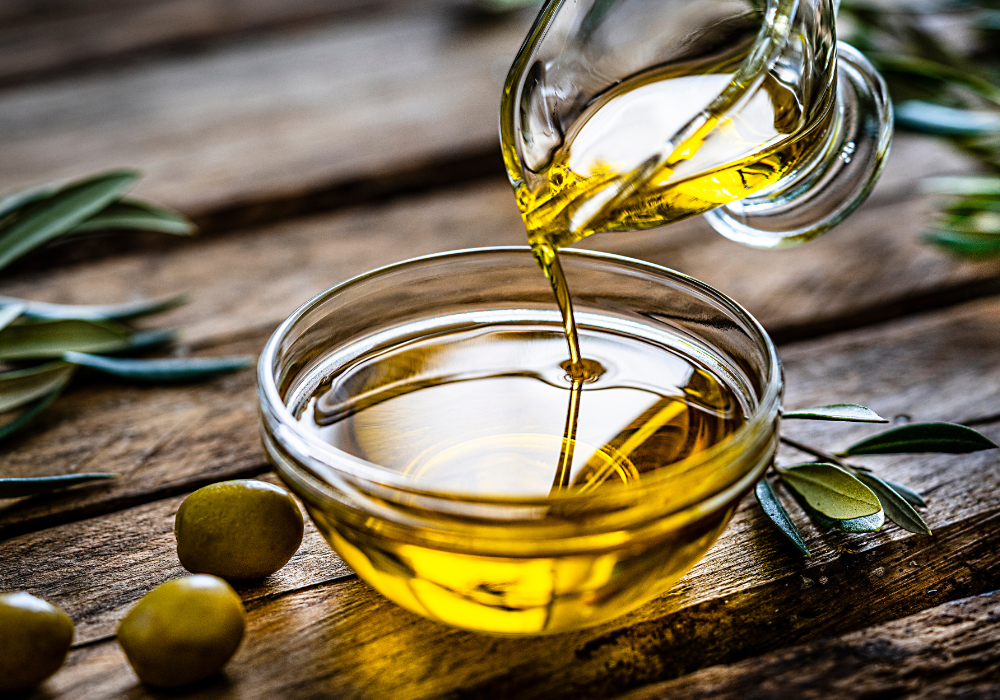
It’s not just for cooking—olive oil makes a surprisingly effective wood polish. Dab a little on a cloth and rub it into cutting boards, furniture, or scuffed leather goods to bring back shine and moisture. It can also help loosen sticky residues or condition metal to prevent rusting. For an easy DIY polish, mix olive oil with lemon juice or vinegar. The combo cuts through grime while nourishing the surface underneath.
Just be sure to use it sparingly—too much can leave things greasy. If you’ve got a bottle sitting on your shelf getting close to its expiration date, give it a second life as a cleaner before tossing it out.
5. Hydrogen peroxide tackles stains and sanitizes surfaces.

That brown bottle under your bathroom sink is more powerful than it looks. Hydrogen peroxide breaks down into oxygen and water, which means it disinfects without leaving behind toxic byproducts. Use it to sanitize cutting boards, toothbrushes, countertops, or reusable water bottles. It’s especially handy for whitening grout or removing blood and wine stains from fabric.
Always test a small area first, and don’t mix it with vinegar in the same container—it creates peracetic acid, which is irritating to skin and lungs. But used safely, it’s a low-waste, high-impact cleaner that covers a lot of ground. For households trying to cut back on bleach or ammonia-based products, this is an easy upgrade.
6. Old toothbrushes make perfect detail-cleaning tools.
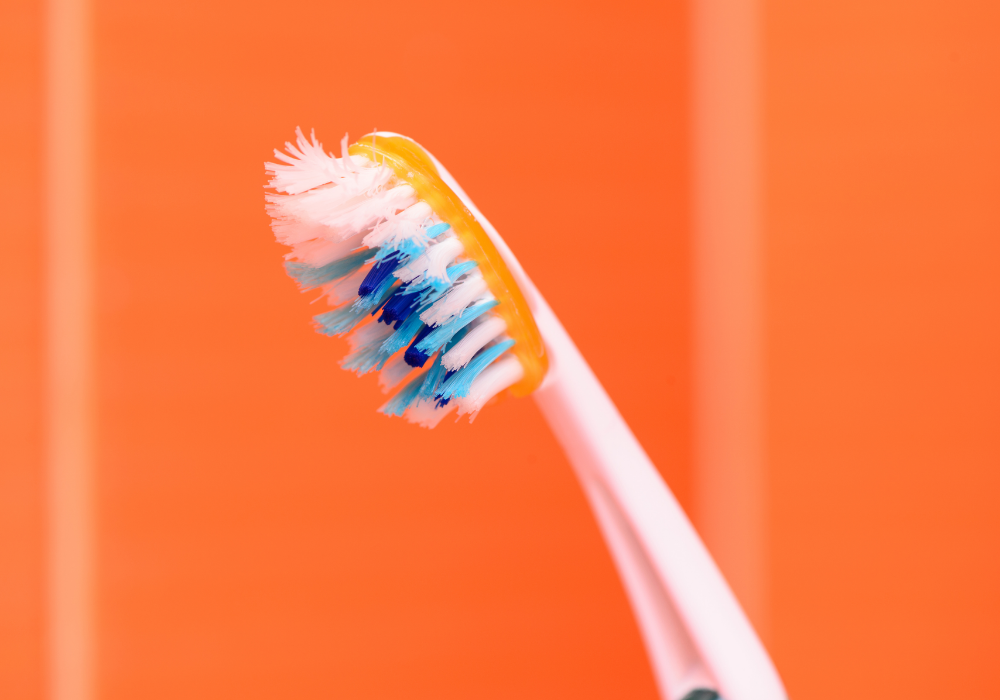
It’s tempting to toss an old toothbrush the second the bristles fray—but don’t. That worn-out brush is actually one of the most useful cleaning tools you already own. Its small head and sturdy bristles make it perfect for getting into the tiny crevices that sponges and cloths can’t reach.
Think grout lines, window tracks, baseboard edges, sink drains, and the nooks around faucet handles. It’s gentle enough not to scratch, but tough enough to scrub away stuck-on gunk. You can pair it with a baking soda paste, dip it in vinegar, or use a dab of dish soap to loosen stubborn buildup.
It’s also great for cleaning the soles of shoes, detailing your car, or de-gunking hair tools. Just give it a rinse and let it dry between uses. Instead of buying new brushes or special gadgets, repurposing an old toothbrush gets the job done—for free—and keeps one more item out of the landfill.
7. Castile soap can replace almost every cleaner under your sink.

If you’ve got an old bottle of castile soap shoved in a cabinet somewhere, don’t let it go to waste. This plant-based soap is ultra-concentrated, biodegradable, and endlessly versatile. You can use it to wash dishes, clean counters, scrub floors, and even wipe down appliances—all with just a few drops. When diluted, it becomes a powerful multi-surface cleaner without any of the synthetic additives that conventional cleaners usually rely on.
It plays especially well with other pantry staples. Combine it with baking soda for a foamy scrub, or mix it with water and essential oils in a spray bottle for a customized all-purpose cleaner. A single bottle can last months and replace dozens of other products. If your cleaning shelf is cluttered with half-used bottles and plastic sprays, castile soap is an easy way to simplify—and green—your routine. Just shake, dilute, and get to work.
8. Rubbing alcohol clears smudges, grease, and germs.

It’s not just a first-aid staple—rubbing alcohol is a stealthy cleaner that works on everything from mirrors to electronics. It evaporates quickly, which means it leaves surfaces streak-free and sanitized without needing rinsing.
You can use it to wipe down stainless steel, degrease kitchen tools, disinfect reusable masks, or make your own DIY screen cleaner. It’s also ideal for high-touch areas like doorknobs and light switches. To make a quick surface spray, mix rubbing alcohol with water and a few drops of essential oil. You’ll get a fast-drying cleaner that smells better than store-bought versions and cuts through grime without any sticky residue. It’s one of the easiest swaps to make if you’re trying to eliminate synthetic disinfectants that come in single-use plastic. Just don’t forget: rubbing alcohol is flammable and strong, so label your mixtures clearly and keep them out of reach of kids and pets.
9. Old T-shirts and towels are better than paper towels.
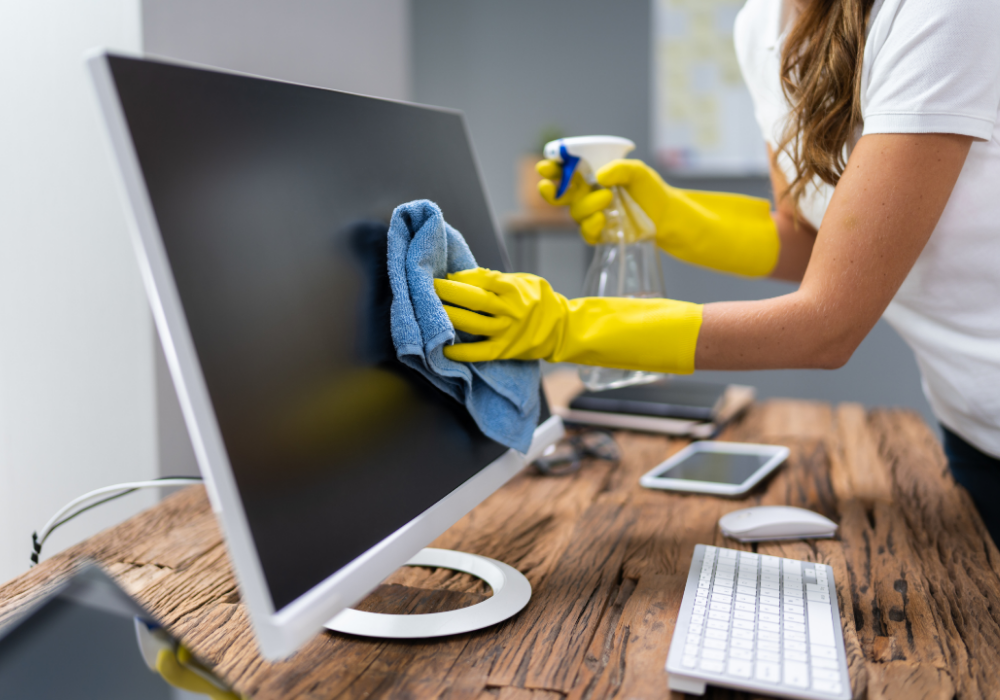
You don’t need to buy fancy microfiber cloths to ditch disposables. Those worn-out T-shirts, pillowcases, or towels stuffed in your closet? They’re prime cleaning material. Cut them into rags and use them to wipe down counters, clean windows, polish furniture, or even dry dishes. Cotton is absorbent, washable, and durable enough to handle repeated scrubbing sessions—and you’re not sending anything to a landfill.
These DIY rags are especially useful for messy tasks like dusting baseboards, cleaning up spills, or soaking up pet accidents—where a paper towel would normally go straight in the trash. After they’re dirty, just toss them in the wash and reuse. Over time, you’ll cut down on your waste and your cleaning budget without sacrificing effectiveness. The best part? You’re giving something you already own a whole new life instead of letting it take up space in storage or end up in the trash.
10. Rice can scrub inside oddly shaped containers.
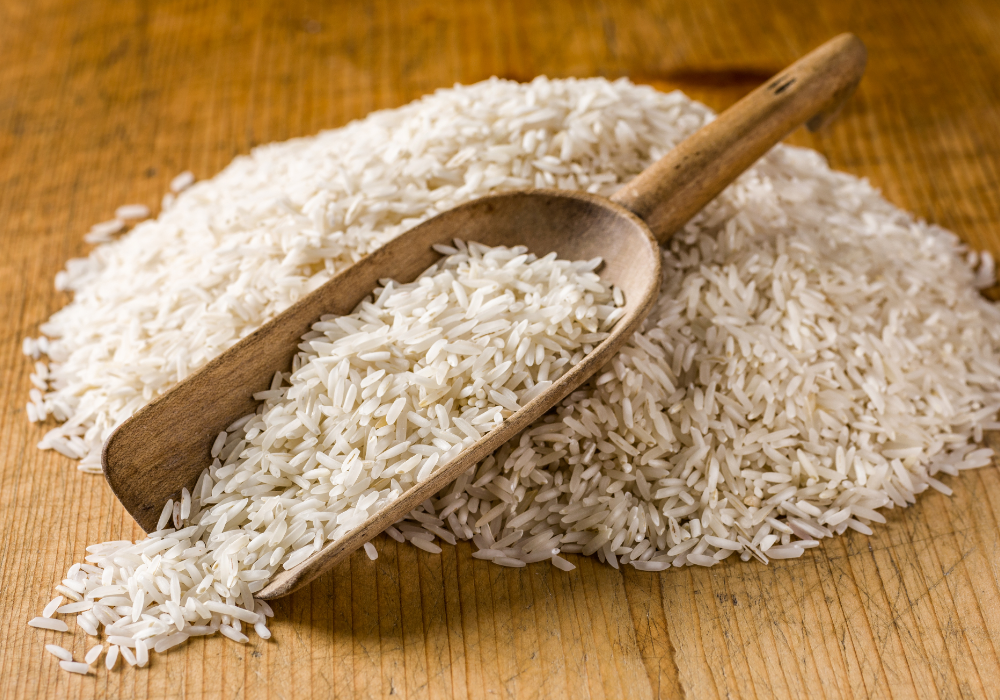
It’s frustrating trying to clean the inside of a vase, bottle, or thermos when your hand doesn’t fit and a sponge can’t reach. That’s where dry rice comes in. Just add a spoonful of uncooked rice to the container, pour in warm water and a little soap, and swirl.
The rice acts like tiny scrubbers, agitating grime from tight corners, curves, and bottle necks that are otherwise impossible to reach. It’s especially useful for cleaning baby bottles, vintage decanters, or reusable water bottles that tend to develop cloudy build-up. After a good swirl, rinse thoroughly and let it dry. It’s a trick that feels weirdly satisfying—and it uses something you already have in your pantry. Instead of buying special bottle brushes or giving up and tossing hard-to-clean items, a handful of rice might be all you need to make them sparkle again.
11. Salt pulls double duty as a natural abrasive.
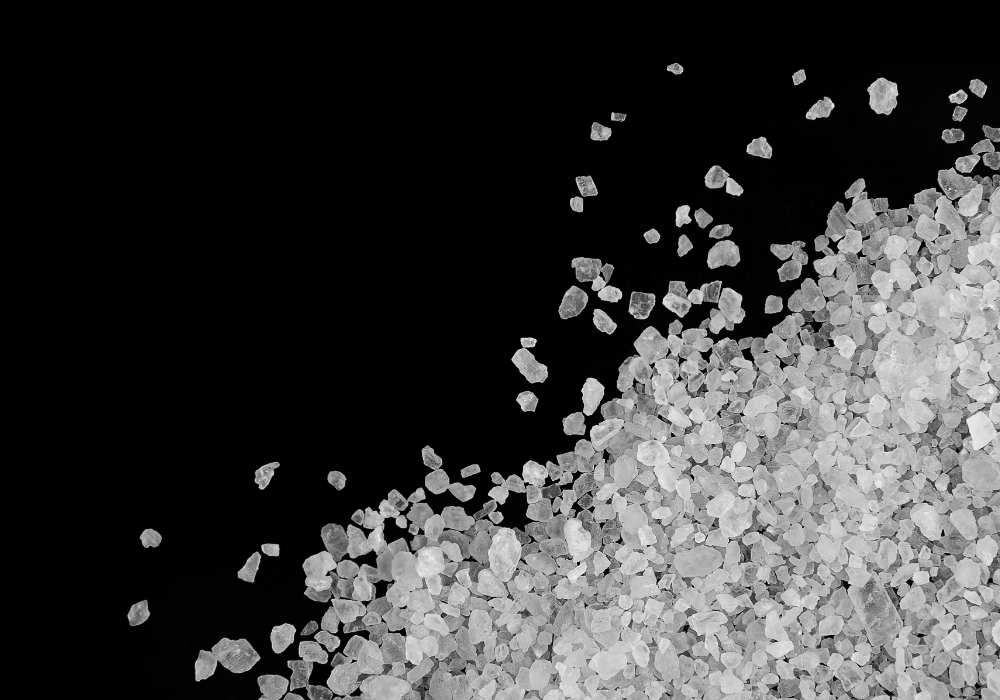
Salt is more than just a seasoning—it’s also a gentle, effective scouring agent. Unlike harsh powders, salt provides enough grit to scrub without scratching most surfaces. You can use it to clean cast iron pans, refresh cutting boards, or remove baked-on food from cookware. Mix it with lemon juice to clean tarnished copper, or combine it with vinegar to deodorize and scrub sinks.
It also works for stain removal. Sprinkle it over spills on fabric or carpets to absorb moisture before blotting. If your drain smells funky, dump in salt followed by boiling water to clear light buildup and neutralize odors. And if you’ve got musty containers or thermoses, salt can help lift lingering smells. The best part? It’s shelf-stable, ultra-cheap, and already in your kitchen. Using salt as a cleaner isn’t just budget-friendly—it’s a simple way to ditch unnecessary chemicals and still get serious results.